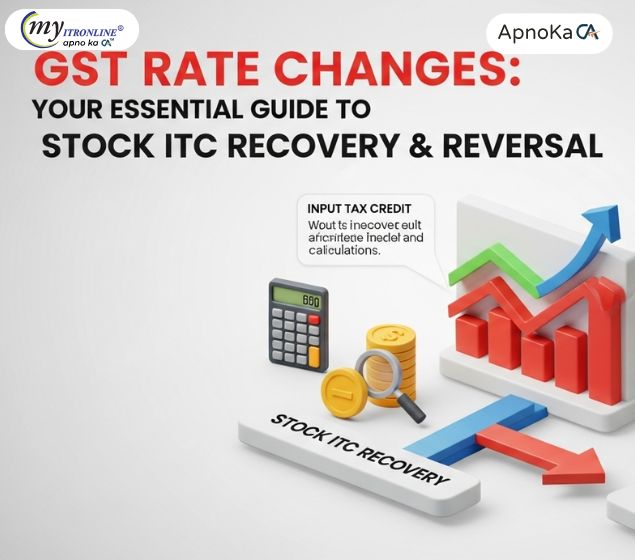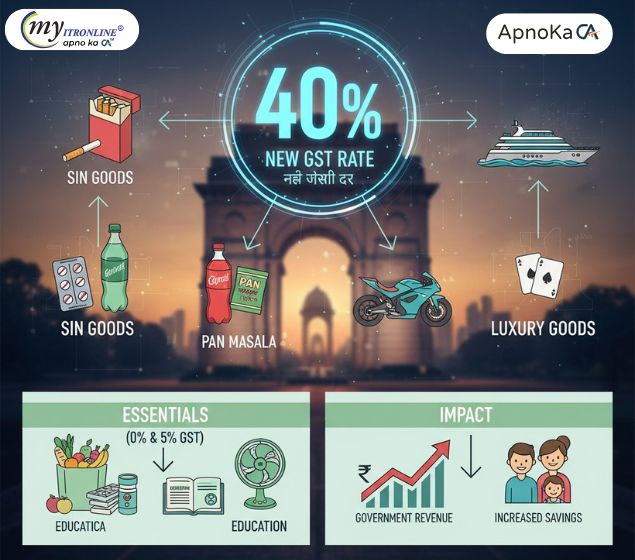# gstreform
7 posts in `gstreform` tag

GST Rate Changes: Your Essential Guide to Stock ITC Recovery & Reversal
This blog post provides a comprehensive guide to the upcoming GST rate changes in India, effective 22 September 2025, focusing specifically on the implications for Input Tax Credit (ITC) on stock. It explains the new simplified tax slab structure (5%, 18%, 40% for luxury goods) and details how businesses should handle ITC for stock purchased before the changes, supplies made after the changes, and unsold old inventory. The post offers practical advice on identifying stock, claiming eligible ITC, reversing ITC where necessary, seeking manufacturer support, and maintaining audit-ready records to navigate this significant tax transition effectively.

Breaking: No Relief in GST, A Big Blow to the Indian Media Industry
This blog post analyzes the impact of the latest GST reforms on the Indian media industry. It highlights how, despite appeals from media and advertising groups, the sector received no significant relief regarding tax parity for digital publications, input tax credit access, or flexible tax payment timing. The article details the approved reforms that benefited other sectors and consumers, contrasting them with the ignored pleas of the media, leading to concerns about worsening the digital divide, liquidity pressure, and hindered cost recovery. It concludes that the lack of targeted reforms poses a major setback for innovation, job creation, and overall growth in the Indian media landscape.

Goods & Services Now Under 40% GST Slab, Effective from 22 September 2025
India is set to implement GST 2.0 from September 22, 2025, introducing a new 40% GST rate for "sin" and luxury goods. This reform simplifies the existing tax structure, lowers GST on essentials, and aims to balance public health with revenue generation. The move will benefit households with reduced costs on necessities, while consumers and industries dealing with luxury and harmful products will face higher taxes.GST 2.0: India Introduces New 40% Tax Slab for Luxury & Sin Goods

Historic Diwali Gift for the Nation: Next-Gen GST Reform
This blog details the significant GST cuts introduced as a 'Diwali gift' for the nation. It highlights how these reforms aim to simplify the tax structure and ease financial burdens across various sectors including daily essentials, agriculture, healthcare, education, and certain electronic appliances and vehicles, ultimately fostering a self-reliant India. The article also touches upon process reforms and a positive message from the Prime Minister.

States Push for Tough Steps to Stop Profiteering from GST Cuts
The GST Council is set to meet on September 3-4 to review GST 2.0 reforms. States want strict rules to prevent profiteering so that GST rate cuts actually benefit consumers. Key proposals include a temporary anti-profiteering law, consumer complaint platforms, and tighter monitoring of sensitive sectors. Businesses, however, warn about compliance costs and pricing disruptions.
.jpg)
Union Budget 2025: New GST Rules, ITC Changes & MSME Benefits
Significant GST reforms were implemented in the Union Budget 2025, with an emphasis on increasing transparency, reducing the tax burden on small enterprises, and boosting compliance. Stricter ITC claim regulations, e-invoicing requirements for companies with ₹5 crore in revenue, updated GST rates, and higher GST registration limits for MSMEs are some of the major changes. Although companies must adjust to more stringent laws, these changes seek to simplify compliance, increase economic growth, and streamline procedures.
.jpg)
Union Budget 2025–2026: Key Highlights, Expectations, and Economic Impact
The Union Budget 2025–2026, to be presented by Finance Minister Nirmala Sitharaman on February 1, 2025, is expected to set the financial roadmap for the coming fiscal year. Key areas of focus include changes in taxation, infrastructure development, digital economy growth, and social welfare programs. With rising expectations from businesses and taxpayers, this budget will play a crucial role in shaping India’s economic future. Stay tuned for key announcements and live updates on Budget Day.
